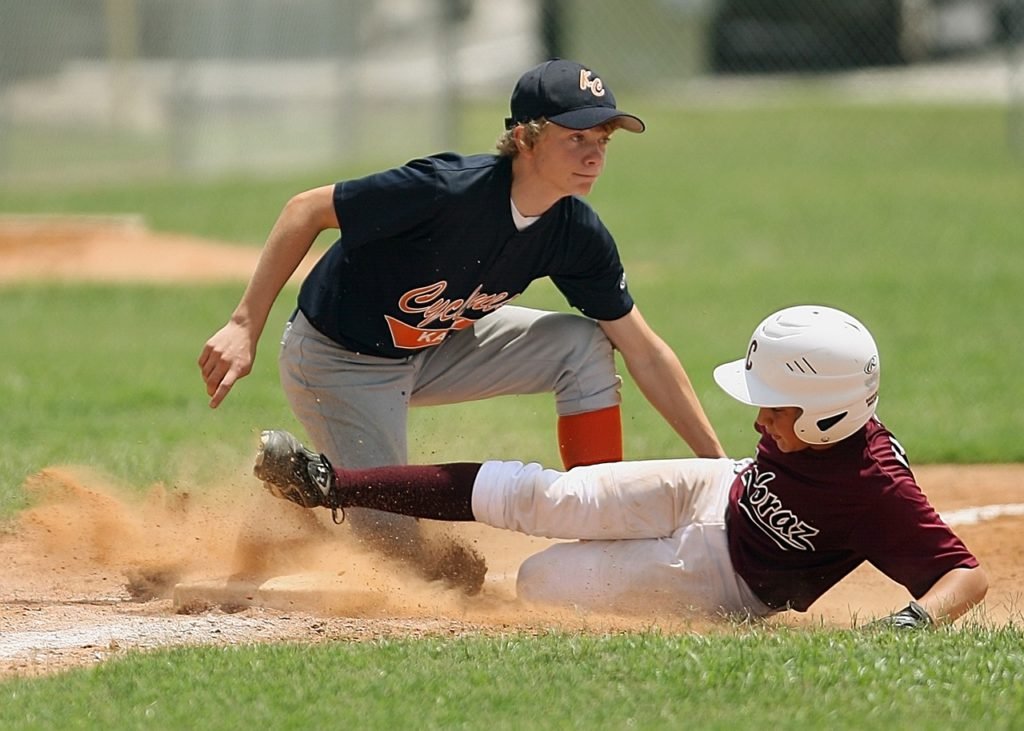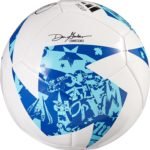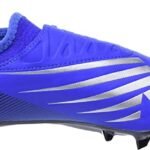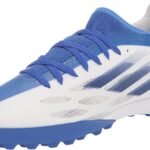Can Soccer Cleats Be Used For Baseball?... Pro's and Cons...
- Last Updated -
Can Soccer Cleats Be Used For Baseball?
YES, you can wear soccer cleats for baseball but Its generally not recommended…
In sports having the gear is crucial, for both performance and safety. While soccer cleats and baseball cleats might look similar they serve purposes.
Let’s discuss whether using soccer cleats for baseball is an idea or not.
Factors to Consider;
Traction and Outsole Design; Soccer cleats have studs or blades on the outsole to grip grass surfaces. These studs are shorter and more plentiful than those on baseball cleats.
On the other hand baseball cleats have studs that are often made of metal or molded plastic offering the necessary traction on dirt and grass commonly found on baseball fields.
Due to these differences in design soccer cleats may not provide the level of grip and stability needed for quick movements like pivoting or sprinting on the diamond.
Ankle Support and Stability;
Baseball requires movement changes, in direction and sliding. Baseball cleats are specifically designed to offer ankle support and stability to prevent injuries during these actions.
In contrast, soccer shoes are crafted for flexibility and lightness to enhance agility on the soccer field. They often have a cut, which may not provide the level of ankle support necessary, for baseball.
Toe.
Longevity;
Baseball cleats typically come with reinforced toe caps to shield the player’s toes during sliding and aggressive base running. These cleats are built to endure the challenges of the game.
Soccer cleats usually have a sleeker design with a focus on toe protection. The materials used may not be as robust when exposed to the demands of baseball activities.
League Rules and Safety Considerations;
It’s crucial to recognize that different baseball leagues, at different levels, may impose specific guidelines on footwear. Players might be mandated to wear approved baseball cleats for safety reasons and fair competition.
Using soccer cleats in baseball could lead to penalties, disqualification, or injuries due to grip or ankle stability.
While soccer cleats might share some traits with baseball cleats they cannot fully substitute for each other.
Baseball cleats are specially engineered to meet the requirements of the sport by offering traction, ankle support, toe protection, and durability essential, on the field.
For the results and to stay safe while following the rules of the game it’s an idea to wear appropriate baseball cleats when you’re out, on the field.
Getting the gear designed for the sport you’re playing can help you play better and lower the chances of getting hurt.
Differences Between Soccer and Baseball Cleats

One common question that arises among athletes is whether soccer cleats can be used for baseball.
While it is technically possible to wear soccer cleats for baseball, there are important factors to consider.
In this article section, we will explore the advantages and disadvantages of using soccer cleats for baseball, shedding light on why they may not be the ideal choice for baseball players.
Traction and Cleat Design:
- Soccer Cleats: Soccer cleats are specifically designed for soccer, focusing on agility, quick movements, and optimal traction on natural grass or artificial turf. They feature smaller, shorter, and less aggressive cleats compared to baseball cleats. The design of soccer cleats prioritizes quick turns and swift acceleration.
- Baseball Cleats: Baseball cleats, on the other hand, are purpose-built for the specific demands of baseball. They feature longer, more substantial cleats that provide superior traction on dirt or grass surfaces. The longer cleats penetrate the ground, offering stability and grip during sudden bursts of speed and quick changes in direction.
Toe Protection:
- Soccer Cleats: One notable difference between soccer cleats and baseball cleats is the presence of a toe cap. Soccer cleats generally lack a protective toe cap, leaving the toes more vulnerable to potential injuries caused by impacts, collisions, or foul balls.
- Baseball Cleats: In contrast, baseball cleats often come equipped with a toe cap, offering an additional layer of protection for the toes. The toe cap helps safeguard against injuries that may occur from accidental contact with the ball, other players, or the ground.
Shoe Construction and Durability:
- Soccer Cleats: Soccer cleats are designed with lightweight materials to maximize speed and agility. While they are built for durability and endurance, the constant running, kicking, and cutting movements in soccer can take a toll on the cleats over time, potentially leading to faster wear and tear.
- Baseball Cleats: Baseball cleats are typically constructed with more robust materials to withstand the rigors of the sport. The design and construction prioritize durability, as baseball involves frequent running, sliding, and other movements that can put significant stress on the footwear.
Pros and Cons of Wearing Soccer Cleats for Baseball
Pros:
- More affordable than baseball cleats
- More lightweight and flexible
- Can be worn for multiple sports
- Better suited for playing on turf fields
Cons:
- Not designed for baseball
- Provide less traction on grass fields
- Lacks a toe cap, which can lead to injury
- Can lead to disqualification in official games

How to Choose the Right Cleats for Baseball
When choosing the right cleats for baseball, it is important to consider the following factors:

Field type:
Different field types require different types of cleats.
Position:
Different positions have different needs. For example, pitchers need cleats with a toe cap, while outfielders need cleats with longer and sharper cleats for better traction.
Comfort:
Look for cleats that fit well and are comfortable to wear for long periods.
Material:
Consider the durability and breathability of the cleats
Conclusion
In conclusion, while it is possible to wear soccer cleats for baseball, it is not the best option.
Soccer cleats lack the design features that are essential for optimal performance in baseball, such as longer and sharper cleats, a toe cap for protection, and a sturdier sole.
When it comes to choosing the right cleats for baseball, it is best to invest in a pair of high-quality baseball cleats that are designed specifically for the needs of baseball players.
By doing so, you can improve your performance on the field and reduce your risk of injury. Remember to consider factors such as field type, position, comfort, and material when choosing the right cleats for you. (1)
FAQ's - Soccer Cleats For Baseball
Can Soccer Cleats Be Used For Baseball?
- Yes, soccer cleats can be used for baseball but it’s not recommended due to differences in traction, outsole design, and safety regulations.
What Are the Differences in Traction and Outsole Design Between Soccer and Baseball Cleats?
- Soccer cleats have shorter, more numerous studs for grass surfaces, whereas baseball cleats have fewer, longer studs often made of metal or plastic for traction on dirt and grass.
How Do Soccer and Baseball Cleats Differ in Ankle Support and Stability?
- Baseball cleats provide ankle support for lateral movements and quick direction changes, while soccer cleats prioritize flexibility and have a lower cut, offering less ankle support.
Are There Differences in Toe Protection Between Soccer and Baseball Cleats?
- Baseball cleats often have reinforced toe caps for protection during sliding and base running, unlike soccer cleats which have a more streamlined design with less toe protection.
What Should Be Considered When Choosing Cleats for Baseball?
- Consider field type, player position, comfort, and material of the cleats for durability and breathability.
Introduction: Demystifying a Controversial Issue Soccer is a sport that requires specific...
Read More


















